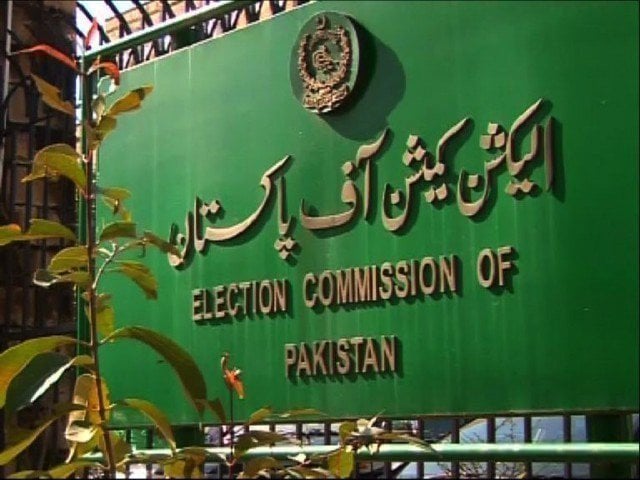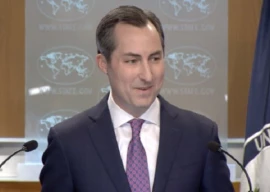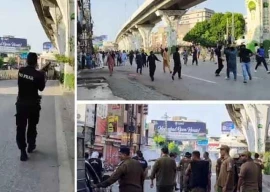
The ECP chief refused to administer oath to the two members nominated by the government, declaring its notification for the appointment as unconstitutional, which has further complicated the matter.
In case the ECP becomes inactive, then the process of by-elections and local government elections would come to halt in the country. The term of the Khyber-Pakhtunkhwa local government has already ended.
The posting of Justice (retd) Sardar Raza Khan as CEC took place in 2014 and his five-year term would complete in the first week of December 2019.
If posts after the expiry of Raza's tenure are not filled in light of the Constitution, the ECP would become inactive because two of its members - Abdul Ghaffar Soomro from Sindh and Shakeel Ahmed Baloch from Balochistan - retired on the January 26 after completion of their two-and-a-half-year term, which took place through a draw.
Despite a lapse of six months, the postings had not been filled owing to the deadlock between the government and the opposition parties.
President Arif Alvi, using his powers, issued a notification for the appointment of two members but the CEC termed the postings unconstitutional and refused to administer oath and informed the Ministry for Parliamentary Affairs about his decision in writing.
After the retirement of the ECP chief, only two members of the ECP would remain - Justice (retd) Altaf Ibrahim Qureshi and Justice (retd) Irshad Qaiser.
Former ECP secretary Kanwar Dilshad said, “The ECP is a constitutional institute and the matter of posting of its members is defined in the Constitution.
“In case of a deadlock between the government and the opposition, a 12-member parliamentary committee would accord approval to the given names.”
The meeting of parliamentary committee held over a month ago ended in a deadlock.
“Since the Constitution is not clear, it cannot be said what procedure is to be adopted in case of a deadlock in the parliamentary committee meeting,” he said.
Dilshad said it was an administrative crisis and not a constitutional one and the government had to take a step to overcome it.
It is pertinent to mention that the tenure of the K-P local government expired on August 28. If this continues, three of the four provinces would remain deprived of the local government system.
The local government is not present in Balochistan for seven months and in Punjab for three months.
In Balochistan, the local government tenure had ended on January 27. However, a case regarding making amendments to the local government laws was filed in the Balochistan High Court and the matter was pending in the court till date.
The ECP could not conduct the elections as long as the matter was in the BHC.
The Punjab local government’s tenure ended on May 5. However, after approval of the new local government laws, the matter was still pending in the Lahore High Court.
1732603002-0/lamar-(4)1732603002-0-405x300.webp)
1720420084-0/brad-pitt-(2)1720420084-0-165x106.webp)




1732600231-0/BeFunk_§_]__-(50)1732600231-0.jpg)










COMMENTS
Comments are moderated and generally will be posted if they are on-topic and not abusive.
For more information, please see our Comments FAQ